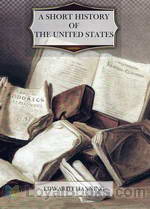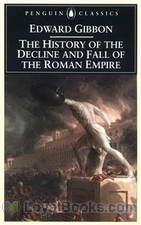|
Books Should Be Free Loyal Books Free Public Domain Audiobooks & eBook Downloads |
|
|
Books Should Be Free Loyal Books Free Public Domain Audiobooks & eBook Downloads |
|
History Books |
|---|
|
Book type:
Sort by:
View by:
|
By: Edward Alva Trueblood | |
|---|---|
 In the Flash Ranging Service Observations of an American Soldier During His Service With the A.E.F. in France
In the Flash Ranging Service Observations of an American Soldier During His Service With the A.E.F. in France
| |
By: Edward Augustus Freeman (1823-1892) | |
|---|---|
 Sketches of Travel in Normandy and Maine
Sketches of Travel in Normandy and Maine
| |
By: Edward Carpenter (1844-1929) | |
|---|---|
 Never Again!
Never Again!
| |
 The Healing of Nations and the Hidden Sources of Their Strife
The Healing of Nations and the Hidden Sources of Their Strife
| |
 Intermediate Sex: A Study of Some Transitional Types of Men and Women
Intermediate Sex: A Study of Some Transitional Types of Men and Women
Written in 1908 by socialist critic and gay rights activist Edward Carpenter, The Intermediate Sex is a thoughtful, humanizing, and frequently utopian treatise on homosexuality that defies some of the period's more stultifying notions about human sexuality. In it, Carpenter argues for the legitimization of “uranianism,” recounts the history of homosexuality from antiquity to present day, highlights the great social and aesthetic work done by Uranians, and outlines some of the transformative social effects that might occur from a greater acceptance of homosexuality. | |
 Civilisation: Its Cause and Cure, and Other Essays
Civilisation: Its Cause and Cure, and Other Essays
This publication, by English utopian socialist Edward Carpenter, describes civilisation as a sort of disease with which humanity is afflicted. Alongside this influential publication , are compiled other essays: Modern Science: A Criticism; The Science of the Future: A Forecast; Defence of Criminals: A Criticism of Morality; Exfoliation: Lamarck versus Darwin; Custom; A Rational and Humane Science; and The New Morality, plus Appendices . - Summary by Jake Malizia | |
By: Edward Channing (1856-1931) | |
|---|---|
 A Short History of the United States
A Short History of the United States
First published in 1908, A Short History of The United States by Edward Channing aims to provide a compact and concise account of the events that went into the making of the United States of America. Divided into 45 short chapters which are laid out point-wise, the book is designed as a school text book. Each chapter has a section at the end with a set of questions regarding the facts given in it. Beginning with theories about the first European who may have “discovered” the North American... | |
By: Edward Crompton Butler | |
|---|---|
 Our Little Mexican Cousin
Our Little Mexican Cousin
This book tells about life in Mexico in the early 20th century, through the eyes of a little girl, Juanita. As the story follows her, the reader learns about cultural practices, historical events, and famous landmarks. | |
By: Edward Delafield (1794-1875) | |
|---|---|
 Inaugural Dissertation on Pulmonary Consumption
Inaugural Dissertation on Pulmonary Consumption
At a time when diseases termed "consumption" were among the leading cause of death in the county, physicians such as Edward Delafield began to publish observations, research, and studies on the topic. The hope of such works was to share gained knowledge with all physicians with faith that causes and treatments would be found to stop these devastating maladies. This is one such work. - Summary by afutterer | |
By: Edward Dicey (1832-1911) | |
|---|---|
 Rome in 1860
Rome in 1860
| |
By: Edward Dowden (1843-1913) | |
|---|---|
 A History of French Literature Short Histories of the Literatures of the World: II.
A History of French Literature Short Histories of the Literatures of the World: II.
| |
By: Edward Duffy (1830?-) | |
|---|---|
 History of the 159th Regiment, N.Y.S.V.
History of the 159th Regiment, N.Y.S.V.
| |
By: Edward Ellis Morris (1843-1902) | |
|---|---|
 Age of Anne
Age of Anne
This short survey of the age of Queen Anne begins with the War of the Spanish Succession and the career of the Duke of Marlborough, leader of the allied armies against Louis XIV. Scotland joins England to form the United Kingdom. Peter the Great wrests control of the Gulf of Finland from Charles XII of Sweden and builds St. Petersburg. Despite the Jacobite threat, the Whigs secure the Protestant Succession and George I ascends the throne. Pope writes a mock epic in couplets, Addison's "Spectator" enlivens coffee houses and tea tables, and Defoe creates the immortal "Robinson Crusoe." | |
 Early Hanoverians
Early Hanoverians
In this short book Edward Ellis Morris writes a vivid account of the reigns of the first two Georges. Scarcely had the fifty-four-year-old king assumed the throne when James Stuart roused the Highlanders in the "Fifteen." Five years later the collapse of the South Sea Company convulsed Britain and her first prime minister, Robert Walpole, emerged to stabilize the country's finances. George II succeeded his father in 1727 and Morris writes that "the new King was in person short, and like many short men, proud and touchy... | |
By: Edward Everett Hale (1822-1909) | |
|---|---|
 The Life of Columbus From His Own Letters and Journals and Other Documents of His Time
The Life of Columbus From His Own Letters and Journals and Other Documents of His Time
| |
By: Edward Farr | |
|---|---|
 A History Of England From Early Times
A History Of England From Early Times
| |
By: Edward Feild (1801-1876) | |
|---|---|
 Extracts from a Journal of a Voyage of Visitation in the "Hawk," 1859
Extracts from a Journal of a Voyage of Visitation in the "Hawk," 1859
| |
By: Edward Fenton Elwin | |
|---|---|
 India and the Indians
India and the Indians
| |
By: Edward Foord | |
|---|---|
 Byzantine Empire
Byzantine Empire
A concise and comprehensive guide to the Byzantine empire from Constantine to its dissolution. Foord explores in an accessible manner why it was important to history, the significance of noteworthy events, and how it eventually fell. While sometimes describing the experience of the everyday people, he mainly focuses on the wars and policies of Byzantine emperors. | |
By: Edward Francis Wilson (1844-1915) | |
|---|---|
 Missionary Work Among the Ojebway Indians
Missionary Work Among the Ojebway Indians
| |
By: Edward Frederick Knight (1852-1925) | |
|---|---|
 Cruise of the Alerte - In Search of Treasure
Cruise of the Alerte - In Search of Treasure
The book describes a voyage undertaken in 1889 by an English barrister Edward Frederick Knight to the South Seas. This delightful story takes the reader on a voyage to the forbidding desert island of Trindade, where it is rumored that immense treasure lies buried. Though the heroes of this treasure-hunt do not have to contend with malicious people, they have their share of adventures. Almost inaccessible desert island, changing weather, hideous land crabs and heavy digging in the mud are enough challenges for the brave adventurers. | |
By: Edward G. D. (Edward George Downing) Liveing (1895-1963) | |
|---|---|
 Attack An Infantry Subaltern's Impression of July 1st, 1916
Attack An Infantry Subaltern's Impression of July 1st, 1916
| |
By: Edward Gaylord Bourne (1860-1908) | |
|---|---|
 The Northmen, Columbus and Cabot, 985-1503
The Northmen, Columbus and Cabot, 985-1503
| |
By: Edward George Bulwer-Lytton (1803-1873) | |
|---|---|
 Leila or, the Siege of Granada
Leila or, the Siege of Granada
| |
 Devereux
Devereux
| |
By: Edward Gibbon (1737-1794) | |
|---|---|
 History of the Decline and Fall of the Roman Empire
History of the Decline and Fall of the Roman Empire
Spanning a period of nearly 1500 years, this monumental work of history tracks the orbit of one of the greatest Empires of all time. The sheer scale and sweep of the narrative is breathtaking in its ambitious scope and brings to vivid life the collapse of a magnificent military, political and administrative structure. Proceeding at a brisk pace, the original fourteen volumes describe debauched emperors, corrupt practices, usurpers and murderers, bloody battles, plunder and loot, barbarian hordes, tumultuous events like the Crusades and invaders like Genghis Khan and many more... | |
 Memoirs of My Life and Writings
Memoirs of My Life and Writings
| |
By: Edward Gleichen (1863-1937) | |
|---|---|
 The Doings of the Fifteenth Infantry Brigade August 1914 to March 1915
The Doings of the Fifteenth Infantry Brigade August 1914 to March 1915
| |
By: Edward Harper Parker (1849-1926) | |
|---|---|
 Ancient China Simplified
Ancient China Simplified
| |
By: Edward Hayes (fl. 1580.) | |
|---|---|
 Sir Humphrey Gilbert's Voyage to Newfoundland
Sir Humphrey Gilbert's Voyage to Newfoundland
| |
By: Edward Howard Griggs (1868-1951) | |
|---|---|
 The Soul of Democracy The Philosophy of the World War in Relation to Human Liberty
The Soul of Democracy The Philosophy of the World War in Relation to Human Liberty
| |
By: Edward Hutton (1875-1969) | |
|---|---|
 Florence and Northern Tuscany with Genoa With Sixteen Illustrations In Colour By William Parkinson And Sixteen Other Illustrations, Second Edition
Florence and Northern Tuscany with Genoa With Sixteen Illustrations In Colour By William Parkinson And Sixteen Other Illustrations, Second Edition
| |